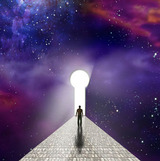This is a great book inadvertently. It deals with the topic of Mass Psychology, Mass Psychosis, the Absolute Power Corruption disease, and many other things that critical thinkers will find stimulating; at least the grey matter zone in your body will thank you.
I will post some of my random thoughts below and then follow with some quotes etc
On the topics of reality and Truth, he states that the individual is not provided with the opportunity to determine these concepts for himself. It is shaped for them by the State (I would say the top players as they control the state, but the concept is the same), and the idea is to create a given narrative that suits their needs. When a society is allowed to grow without someone trying to shape the narrative, only 30% of individuals will fall under the category of free or critical thinkers. Note this is under ideal conditions; in today's western society, the critical level of 10 has been breached; 7 to 9 per cent of the populace can think for themselves, and even then, many might have difficulty formulating a coherent plan with the data they obtain.
The rest of the populace falls into individuals who think they are critical thinkers because of their education and ability to process vast amounts of data. It never occurs to them that most of the data they are examining is faulty; hence, irrespective of the effort, the outcome will be flawed.
Then you have fashion critical thinkers that find 2-9 gurus and try to emulate their ideas, but without them, they are just tumbleweeds. The rest are ready to be shaped and moulded with minimal effort. However, when critical thinkers represent 10-12 per cent of the populace, the ideal number being anything above 15%, they can contain the evilest of players. 9/11 took the percentage down to the 10-11 per cent range. After that, it started to Drop. COVID marked an inflexion point; the critical zone was breached.
Russell on how you could convince children snow is black.
”“First, that the influence of home is obstructive. Second, that not much can be done unless indoctrination begins before the age of ten. Third, that verses set to music and repeatedly intoned are very effective. Fourth, that the opinion that snow is white must be held to show a morbid taste for eccentricity. But I anticipate. It is for future scientists to make these maxims precise and discover exactly how much it costs per head to make children believe that snow is black, and how much less it would cost to make them believe it is dark gray.
“Most of the greatest evils that man has inflicted upon man have come through people feeling quite certain about something which, in fact, was false.” Russell
Vital statistics in the West are dominated by medicine and birth control: the one diminishes the deaths, the other the births. The result is that the average age in the West increases: there is a smaller percentage of young people and a larger percentage of old people. Some people consider that this must have unfortunate results, but speaking as an old person, I am not sure.
The danger of a world shortage of food may be averted for a time by improvements in the technique of agriculture. But, if population continues to increase at the present rate, such improvements cannot long suffice. There will then be two groups, one poor with an increasing population, the other rich with a stationary population. Such a situation can hardly fail to lead to world war. If there is not to be an endless succession of wars, population will have to become stationary throughout the world, and this will probably have
to be done, in many countries, as a result of governmental measures. This will require an extension of scientific technique into very intimate matters. There are, however, two other possibilities. War may become so destructive that, at any rate for a time, there is no danger of overpopulation; or the scientific nations may be defeated and anarchy may de- stroy scientific technique
military dictatorship of a minority enforced by arbitrary police power'. When people think of democracy, they generally couple with it a considerable measure of liberty for individuals and groups. The main point is this: Scientific technique, by making society more organic, increases the extent to which an individual is a cog; if this is not to be an evil, ways must be found of preventing him from being a mere cog. Democracy, at present, defeats its objects by the vastness of the constituencies involved. Suppose you are an American, interested in a Presidential election. Liberty, in the old-fashioned sense, is much more important in regard to mental than to material goods. A democratic scientific society by exacting service and conferring security forbids or prevents much personal initiative which is possible in a less well-regulated world.
https://www.youtube.com/watch?v=xL_sMXf ... gIntellectA new kind of oligarchy was introduced by the Puritans during the English Civil War. They called it the 'Rule of the Saints'. A scientific oligarchy, accordingly, is bound to become what is called 'totalitarian', that is to say, all important forms of power will become a monopoly of the State. Oligarchies, throughout past history, have always thought more of their own advantage than of that of the rest of the community. The completeness of the resulting control over opinion depends in various ways upon scientific technique. Scientific societies are as yet in their infancy. A totalitarian government with a scientific bent might do things that to us would seem horrifying. The government, as opposed to its individual members, is not sentient; it does not rejoice at a victory or suffer at a defeat. A system may be more oligarchic or less so, according to the percentage of the population that is excluded; absolute monarchy is the extreme of oligarchy


